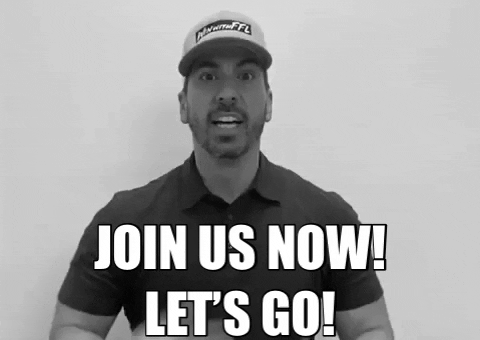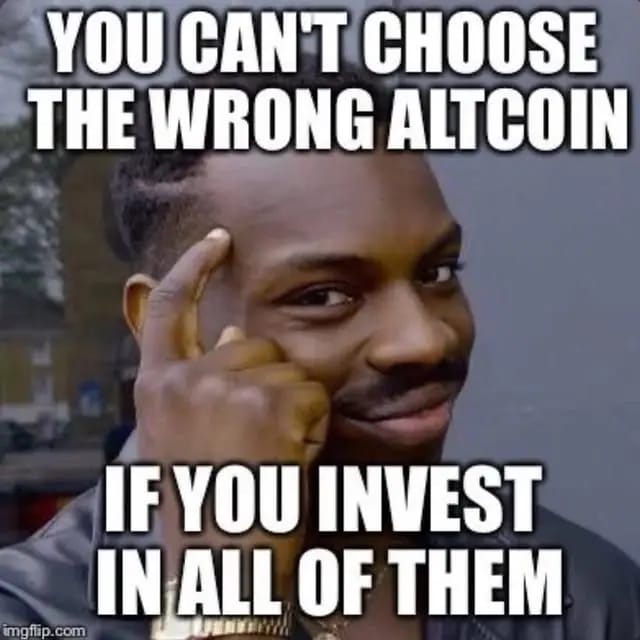- The High Performance Playbook
- Posts
- Updating Your Belief System Is the First Step to High Performance... Here's Why
Updating Your Belief System Is the First Step to High Performance... Here's Why
The High Performance Playbook
Before we get into today’s newsletter, I’ve been kicking around an idea…
I’ve been getting questions about going deeper, more strategy, more structure, and more behind-the-scenes of how I actually operate.
So I’m thinking about launching a Premium Version of this newsletter.
Here’s a brief overview of what it would include:
✅ Monthly Deep Dive strategy guides (wealth, business exits, investing frameworks, routines, etc.)
🎧 Private Audio Masterclasses with lessons from real deals, wins/losses, and tactical breakdowns
📞 Monthly Live Q&A / Hot Seats with personalized coaching and audits
🧰 Full Vault Access to past content, templates, and member-only tools
📄 Weekly “Action Sheet” PDFs with MITs, mindset prompts, and one strategy to apply
🔐 Optional Private Community for accountability + access
⚡ Early Access Drops and bonus content only for subscribers
Think: the free version motivates you… the premium version multiplies you.
But before I build it, I’d love your input:
Would you be interested in a Premium Version of this newsletter? |
Thanks for being here either way. We’re getting started!
Now, onto this week’s newsletter:
Welcome to Week 26 of the High Performance Playbook.
We’re seeing incredible progress! In just over 6 months, we’ve brought together almost 8,000 high performance community members, and we’re closing in fast on 10K! So, huge thank you for reading and continuing to share this newsletter with friends!
If you’re just tuning in to the HPP, these are the strategies and frameworks that separate the 1% from the .01%. We dive deep into: health & fitness + longevity, personal finance & investing, business growth hacks, and how to optimize all areas of your life.
If any of those sound interesting, the High Performance Playbook is for you.

If you enjoy the content and get some value from it, please share this link with a few friends and help me spread the word! There’s no better compliment than a referral.
Ready? Start your engines… Let’s GO:

Mindset & Psychology

Your Default Programming is Holding You Back
Most people don’t realize this, but the way you approach time, money, stress, and success… it didn’t come from conscious choice
It came from exposure. Childhood. Culture. Survival environments.
You didn’t sit down and pick these beliefs, they were installed by default.
For years, I ran on mental programming that I didn’t create.
Beliefs like:
“Work equals worth.”
“Being busy means I matter.”
“If I’m not doing everything, something will break.”
I thought I was choosing those behaviors. I wasn’t.
I was just following the script.
Eventually, I realized that if I wanted new outcomes, I needed to install a new operating system (or new programming), one designed for growth instead of survival.
So I started asking better questions.
What beliefs still serve me? What rules am I following that don’t belong to me anymore? Where am I creating pressure I don’t need?
Instead of “I have to grind to succeed,” I rewrote it as, “Clarity and energy create better output.”
Instead of “I’m the glue,” it became, “I’m the architect. I build systems, so I’m not the glue.”
The shift wasn’t dramatic overnight. But day by day, I built a new internal framework.
And with that shift came more peace, more leverage, and better results.
You can’t build a high-performance life with a hand-me-down mindset.
Audit the defaults. Rewire what no longer fits.
Write your own script and make sure it matches the future you’re building.
Check out this new section below where we curate the biggest story of the week you may have missed (in each of our core pillar sections).
💪 Biggest Story of the Week (Mindset & Psychology)
Is Work-Life Balance Holding You Back?
22-year-old entrepreneur Emil Barr went viral this week for one bold claim:
“Work-life balance will keep you mediocre.”
He argues that building wealth young requires sacrificing comfort—sleep, weekends, even health. Critics called it toxic. Others said he just said what many founders believe but won’t admit.
Why it matters: You don’t have to agree, but the debate forces a hard question: Are you optimizing for comfort or compounding?
How 433 Investors Unlocked 400X Return Potential
Institutional investors back startups to unlock outsized returns. Regular investors have to wait. But not anymore. Thanks to regulatory updates, some companies are doing things differently.
Take Revolut. In 2016, 433 regular people invested an average of $2,730. Today? They got a 400X buyout offer from the company, as Revolut’s valuation increased 89,900% in the same timeframe.
Founded by a former Zillow exec, Pacaso’s co-ownership tech reshapes the $1.3T vacation home market. They’ve earned $110M+ in gross profit to date, including 41% YoY growth in 2024 alone. They even reserved the Nasdaq ticker PCSO.
The same institutional investors behind Uber, Venmo, and eBay backed Pacaso. And you can join them. But not for long. Pacaso’s investment opportunity ends September 18.
Paid advertisement for Pacaso’s Regulation A offering. Read the offering circular at invest.pacaso.com. Reserving a ticker symbol is not a guarantee that the company will go public. Listing on the NASDAQ is subject to approvals.

Health & Fitness + Longevity

Your Gut Is Sabotaging Your Discipline
If you’ve ever felt like your willpower disappeared overnight…
If cravings hit harder when you’re tired or stressed…
If focus feels foggy, no matter how much you “push through”…
It might not be a mindset problem.
It might be your gut.
Your microbiome (aka the trillions of bacteria living in your digestive system) plays a massive role in your mood, energy, discipline, and even decision-making.
Gut bacteria influence everything from how well you absorb nutrients to how your brain regulates dopamine and serotonin.
They literally help shape your behavior.
Here’s what that means in the real world:
Poor gut health can lead to brain fog, sugar cravings, energy crashes, and irritability.
It increases stress reactivity and lowers resilience.
And it makes discipline feel 10x harder than it should.
It took me a long time to realize I had an issue with this, and when I started taking gut health seriously, I noticed I didn’t have to “force” clean eating or focus anymore… my body actually started cooperating.
Here’s what helped:
Prioritizing whole, unprocessed foods (cut the seed oils and sugar bombs)
Adding JuicePlus to my nutrition protocol (this is the best vitamin, mineral, and phytonutrient supplement I’ve found, and they are backed by the most clinical research of any nutritional product on Earth).
Occasionally adding fermented foods like sauerkraut, kefir, or kimchi
Reducing chronic stress (because stress destroys the gut lining)
Sleeping better (poor sleep harms gut integrity, too)
The biggest shift for me was realizing how incredibly hard it is to “out-discipline” a dysregulated system.
You’re essentially playing on hard mode for no reason.
If you want to be more focused, consistent, and sharp, don’t look for another productivity hack…
You might just need to heal your gut.
🦺 Biggest Story of The Week (Health & Fitness)
Weighted Vests: Miracle Tool or Overhyped Trend?
Weighted vests are trending, but are they worth it? Some claim they boost bone density, strength, and posture. But the science says otherwise.
They can make walking tougher and burn more calories, but they won’t replace real strength training.
Why it matters: If it helps you stay consistent, great. Just don’t mistake it for muscle-building magic.
Quick Break for a Story…
The Friend Who Got Me Into Crypto
We all have that one friend who told us about something way before the rest of the world caught on.
For me, that friend was Arthur, my long time friend from Atlanta.
He told me about Bitcoin back in 2013.
At the time, he called it “magic internet money,” and I remember laughing, thinking it sounded ridiculous.
But he was dead serious.
He believed in it. He had done the research. And he had conviction.
Fast-forward over a decade later, and it became the best investment of my life.
Here’s the thing: I never would’ve taken that leap without someone in my corner nudging me to look deeper.
And now, I try to be that person for others, sharing what I’ve learned, even when it’s early or unpopular.
That’s what belief is.
It’s seeing potential before it’s obvious.
And when you find something that changes your life, you don’t keep it to yourself.
You share it.
Be that friend for someone else!

Personal Finance Tip of the Week

The Government’s Strategic Bitcoin Reserve Is Real… But Misunderstood
You might’ve seen the headlines:
“U.S. Government Launches Bitcoin Reserve”
“Crypto Becomes National Security Infrastructure”
“Treasury Prepping for a Digital Asset Future”
Sounds like the government’s buying Bitcoin, right?
Not quite.
Here’s what’s actually happening and why it matters:
In March 2025, the U.S. established something called the Strategic Bitcoin Reserve as part of a broader Digital Asset Stockpile initiative.
But the key detail?
They didn’t buy anything.
These reserves are built entirely from seized and forfeited crypto assets… not taxpayer-funded purchases.
Federal agencies (like the DOJ, IRS, and Secret Service) have been seizing Bitcoin and other digital assets for years in criminal investigations. Now, instead of selling those assets at auction, the government is beginning to hold them.
That’s a shift in posture from liquidation to accumulation.
What This Really Means
This isn’t a bet on crypto like some headlines suggest.
It’s a hedge and maybe a domino.
Here’s why it matters for you:
Holding instead of selling = strategic acknowledgment
The U.S. could have liquidated its seized Bitcoin, but didn’t. That’s a statement. It says, “This might be an asset worth keeping.”
Other governments might follow
If more nations start viewing Bitcoin the way they view gold or oil reserves, this becomes a geopolitical asset class, not just a tech bet.
Public confidence could grow quietly
The average American may not follow these policy shifts, but sentiment often follows precedent. The government holding Bitcoin (even passively) could normalize it faster than any influencer can.
The Bottom Line
If you’re someone who likes to be early, this move is worth watching.
It doesn’t guarantee anything.
But it confirms one thing:
Bitcoin is no longer fringe.
When governments start treating it like a strategic asset (even just the ones they’ve confiscated), the game is shifting.
Keep your eyes open. And don’t miss this train.
🏎️ Biggest Story of the Week (Personal Finance)
Forget the Lamborghini; Here’s What “Rich” Really Means Now
Being rich used to mean cars, watches, and massive homes. But that definition is evolving.
New surveys show most Americans now define wealth as financial peace of mind: living comfortably, being debt-free, and not stressing about money. Even among six-figure earners, more than half don’t feel wealthy.
Why it matters: In an economy where costs are rising and uncertainty is the norm, luxury is out. Stability, freedom, and security are the new signals of success.

Business Playbook

Why Hiring Slow Can Kill Your Momentum
We’ve all heard the advice: “Hire slow, fire fast.”
And in theory, it sounds smart. Thoughtful. Responsible. Strategic.
But in fast-growth environments, it can actually be the thing that keeps you stuck.
When you’re scaling quickly, speed creates compounding returns.
The faster the right person is in the right seat, the faster the flywheel spins.
Wait too long, and you’re not just delaying progress and losing compounding gains every single day.
I’ve seen this play out in my own businesses.
We’d overanalyze a hire for 3–4 weeks, then finally bring someone on… only to realize we could’ve made the same decision with 80% of the info we had in week one.
Meanwhile, backlog builds. Stress compounds. Growth slows.
And here’s the truth: it wasn’t risk mitigation, it was fear disguised as diligence.
Because nobody wants to make a bad hire and end up creating more work on the backend.
Instead of “hiring slow,” here’s what I”ve seen work better:
Hire fast when the need is clear
Hire fast when you have a clear onboarding system
Hire fast when you’re blocking the team by not delegating
Hire fast when momentum matters more than perfection
Because here’s the thing most people miss:
The cost of waiting is usually higher than the cost of a pivot.
We’ve all heard the term, “money loves speed.”
You can coach. You can course-correct. You can part ways if it doesn’t work.
But you can’t get back the opportunities you missed by dragging your feet.
Speed wins when paired with clarity and systems… especially when it comes to hiring.
🚀 Biggest Story of the Week (Business)
The Entrepreneur’s Paradox: Do Less, Achieve More
Most entrepreneurs are drowning in busywork—late emails, nonstop DMs, and weekend grind. But the highest performers aren’t doing more. They’re doing less, but better.
They block time for deep work, schedule rest like strategy, and cut energy-draining tasks without guilt.
Why it matters: Momentum comes from clarity, not chaos. When you stop measuring effort and start measuring impact, everything shifts.

DOPAMINE HIT
Thanks for reading!
If you enjoyed this week’s newsletter, please share it with some friends! And thank you for reading!
🗓️ STAY TUNED:
In next week’s newsletter, I’m sharing a critical mindset shift that changed how I build and structure everything:
It’s called The 5-Year Rule. It’s all about prioritizing long-term operations, strong brand equity, and a team that can run without you. I’ll break down the key levers I focus on (and avoid) to make businesses more valuable, whether I want to sell or not.
You won’t want to miss this one. Have a great weekend!
Here’s to your success,

Austin L. Wright

Join my inner circle - Follow me on X for daily business breakdowns, lifestyle hacks, and a behind-the-scenes look at what my team and I are building.
Follow me on IG to see how I’m living the blueprint. I practice what I preach.
P.S.
We’re always looking to improve and create better newsletters for you in the future. If you have any feedback or suggestions for future editions, I’d love to hear from you! Just reply directly to this email and give me some ideas for how you think we could make it better!
If you’re reading this online, make sure you subscribe using the button below:
Disclaimer: The ideas shared in this newsletter are those of the author, and this is in no way intended to be medical, legal, or financial advice. Always do your own research and consult with licensed professionals.




Reply